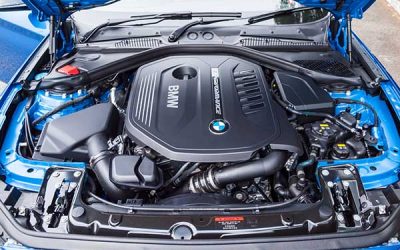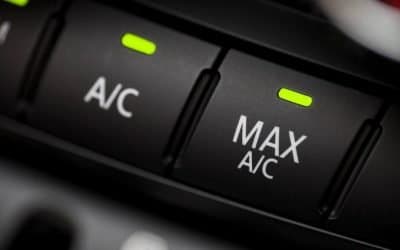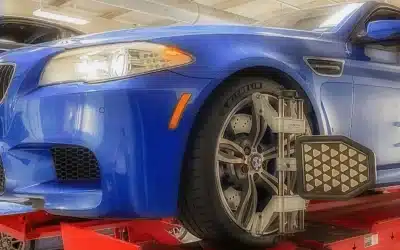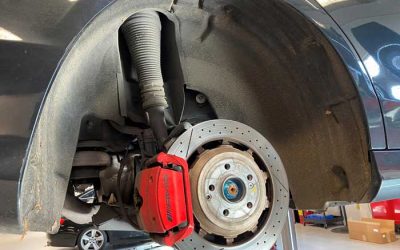Support
Looking for a solution to your car problem?
Frequently Asked Questions
How do I know if a pothole damaged my car?
Ask yourself: Is your car pulling either to the right or left while driving on a straightaway? Are you experiencing difficulty with steering the vehicle? Are your tires wearing unevenly or prematurely? Do any of your wheels have a dent? Do you have to air-up one or two of your tires frequently? If you answer yes to any of the above, then it’s possible that pothole caused some form of damage.
Why fill tires with nitrogen instead of air?
By reducing the percentage of oxygen, water vapor and other gases in your tires from 22% to 7% or lower, your tires will maintain proper pressure longer than if you use “plain old air.” For example, with 95% nitrogen in your tires, they retain optimal pressure three to four times longer.
Carbon buildup on valves - What is it & how do I clean it?
Carbon build-up is a common issue with direct-injected engines like those in modern BMW and Audi models that is an accumulation of carbon deposits on the engine cylinders’ intake valves. A carbon clean method called “walnut shell blasting” is used to safely and effectively clean carbon build-up.
What is an extended warranty & should I get one?
Nobody likes unexpected expenses for auto repairs, if you want peace of mind and like to save money, an extended warranty is a great way to accomplish both. An extended warranty is essentially a service contract between the car owner and the warranty company. According to this contract, the warranty company will pay for the covered repairs for a specific period of time. An extended warranty can help you protect yourself from unexpected repair costs.
What is the difference between Mustang Dynos vs. Dynojet Dynos?
Simply put, Dynojet numbers are usually inflated and Mustang numbers are closer to “true” horsepower numbers. Mustang dyno numbers are more accurate because it takes in to account the variables for each different car. A dynojet just measures how fast the car spins a large drum that is a certain weight and calculates HP from that. A Mustang dyno could be higher than a dynojet, but that is rare.
Why is my low coolant warning light coming on?
Your car has a floating-level which rises and falls with the coolant level in your radiator. As the level falls below a critical amount of coolant in the radiator or expansion tank, required to keep the engine from overheating, the system triggers a warning to alert you. A lot of the time, the coolant level is low because of a leak somewhere.
How long should it take for my car to cool down?
If your car is parked under the sun all day, the temperatures are most likely well over a 120 degrees Fahrenheit. Presuming your car’s A/C is working properly, it should take around 5 to 10 minutes before you can start feeling comfortable. Read more below to find out the quickest way to cool down your car’s interior.
What are the benefits of frequent oil changes?
Simply put, frequent and routine oil services for your European car are one of the most inexpensive ways to ensure that your investment has a long-living power plant under the hood. Never skip an oil change!
When should I get my oil changed?
Proactive maintenance = a healthy car!
At AUTOSCOPE, one of our core beliefs is that being proactive towards car repair and service prevents break downs and helps to reduce unexpected repair costs. By performing proactive maintenance and inspecting the vital systems on your car regularly, this will show those early warning signs that a trained professional sees on a daily basis, and can spot very quickly on a routine check.
Helpful Foreign Car Owner Articles
Top BMW Mechanics in Dallas: Expert Repair & Maintenance Services
Are you looking for a trustworthy BMW technician in the Dallas area? Service of the highest caliber is provided for your luxury vehicle by our highly trained mechanics here at Autoscope. When it comes to servicing your BMW in Dallas, AUTOSCOPE provides an exceptional...
Common BMW Air Conditioning Problems and How to Fix Them
A functional air conditioning system is essential for a comfortable ride in your BMW. However, like any mechanical component, BMW air conditioning systems can encounter issues that affect their performance. This guide explores common BMW air conditioning problems,...
How To Troubleshoot Mercedes-Benz Auto AC
We will walk you through the process of troubleshooting and repairing typical faults that may emerge with the air conditioning (AC) system of your Mercedes-Benz automobile in this detailed guide. In order to maintain a comfortable driving experience, it is vital to...
When to Change Your Mercedes-Benz Brakes: Comprehensive Guide
An All-Inclusive Guide to Understanding When It Is Appropriate to Replace the Brakes on Your Mercedes-Benz It is of the utmost significance to check that the brakes on your Mercedes-Benz are in good working order. This is because the brakes are responsible for both...
Mastering BMW Brake Systems: A Guide for Dallas Drivers
Owning a BMW in Dallas means you are familiar with the superior driving experience that these vehicles offer. Part of maintaining this experience is ensuring your brake system is in top-notch condition. We will explore the intricacies of BMW brake systems,...
Why Choose a Bentley Specialist in Dallas?
Owning a Bentley is a testament to your appreciation for luxury, performance, and timeless elegance. As a Bentley owner, you understand that maintaining such a high-end vehicle requires specialized knowledge and care. This is why choosing a Bentley specialist in...
Introduction to BMW Brake Service in Dallas
Comprehensive BMW Brake Service Guide At Autoscope in Dallas, we understand that maintaining the performance and safety of your BMW is paramount. One of the most critical aspects of vehicle maintenance is ensuring that the brake system is functioning optimally. Our...
Comprehensive Guide to Mercedes-Benz Brake Pads: Everything You Need to Know
At Autoscope in Dallas, we pride ourselves on providing the highest quality automotive services and parts. Understanding the critical components of your vehicle, such as the brake pads, is essential for maintaining safety and performance. In this article, we delve...
Mercedes AMG Maintenance & Care Tips for Texas Owners
Owning a Mercedes AMG is a thrilling experience, offering unparalleled performance and luxury. However, such precision-engineered vehicles demand meticulous care to maintain their exceptional standards. From routine maintenance essentials like oil changes and tire...









